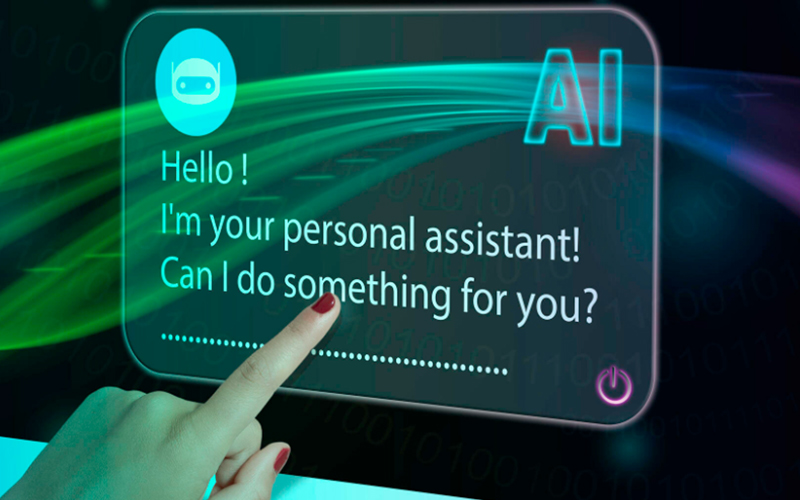With increasing online data consumption, capturing and retaining consumer attention has become more challenging. Customers frequently switch between platforms, stopping only when content is visually engaging or directly relevant to their interests. Artificial Intelligence (AI) in e-commerce is a viable solution in reshaping content creation, consumption, and monetisation in digital retail.
AI content creation enables retailers to automate and scale their content strategies to gain a competitive edge through hyper-personalised customer experience. Content-generation AI tools personalise marketing copies, images, and videos. They deliver customised product suggestions and provide instant support, maintaining brand tone and improving content delivery efficiency.
Infosys BPM retail digital transformation solutions help retailers leverage artificial intelligence in e-commerce and navigate AI content creation challenges through consulting and transformation-as-a-service (TaaS). Stay ahead of recent trends in AI content creation to deliver personalised customer experiences by enhancing operational efficiency and reducing costs with end-to-end approaches in automation and advanced analytics.
Recent trends in AI content creation
Recent trends in AI content creation reveal a significant shift towards automation and personalisation. A recent survey found that 88% of marketers incorporate AI into their daily activities. A substantial portion of it utilises AI for content generation. The growing demand for highly personalised customer experiences is evident in:
Generative AI for text creation
Generative AI creates engaging website content, product descriptions, blogs, and social media posts. Content-generation AI tools optimise content for SEO, adapting to dynamic search algorithms to improve visibility, drive organic traffic, and boost customer engagement.
Automated image and video creation
Artificial intelligence in e-commerce creates high-quality visuals, supporting retailers in reducing costs and reliance on expensive photoshoots and production teams. AI generates photorealistic product images in multiple settings without traditional photography. AI analyses marketing visuals and tailors them to customer demographics and needs, ensuring relevant content delivery to the target audience. AI content engines create high-quality videos, reducing time, cost, and dependence on experts.
AI-driven interactive shopping experiences
Content-generation AI tools use Augmented Reality (AR), Virtual Reality (VR), and Mixed Reality (MR) to generate interactive 3D product models, helping customers to visualise products in real-world settings and enhance confidence in purchasing decisions. AI-powered virtual sales assistants further enhance the shopping experience by walking customers through virtual stores and extending support as the customer requires. Virtual dressing rooms simulate in-store try-on experiences for clothes, accessories, or makeup, easing online purchasing decisions.
Personalised advertising through AI in retail marketing
Artificial intelligence in e-commerce tailors website banners, marketing campaigns, and product recommendations based on customer interactions, past purchases, interests, demography, and trends. These tools optimise landing pages and personalise social media ads and email marketing, creating a unified content strategy to enhance customer engagement and purchase possibility.
AI-driven personalised customer support
AI chatbots enhance customer services by providing real-time interactive support through text, visuals, and voice commands. AI content creation is based on Natural Language Processing (NLP), making the chatbots sophisticated enough to mimic human conversations.
AI in influencer marketing
AI generates digital personalities as virtual influencers, aligning with the brand identity for specific marketing campaigns. These influencers generate cost-effective, scalable promotional content for brands to engage with audiences innovatively while maintaining authenticity.
Key areas where retailers can leverage AI in content creation
Artificial intelligence in e-commerce provides opportunities to produce high-quality, scalable, personalised content to enhance content strategy. However, to maximise the benefits of AI in content creation, retailers need to ensure the strategic alignment of brand identity, customer expectations, and overall business goals.
AI content generation tools for scalability
Selecting AI solutions that suitably convey the brand identity is non-negotiable. The right AI content creation tools enable quick content delivery across multiple platforms in no time while consistently meeting marketing objectives.
Content optimisation strategies
AI in retail marketing supports performance marketing tools to analyse engagement data and customer feedback to identify KPIs and bottlenecks for refining content strategies. Retailers should assess AI-generated and human-created content performance to optimise resources effectively.
Hyper-personalised content for expanding the market
Content-generation AI tools analyse and create content by analysing the culture, traditions, and laws of a particular region, enabling businesses to expand into new markets while maintaining relevance. Content localisation ensures compliance with regional standards and stronger customer engagement.
With innovations in technology and its growing adoption, artificial intelligence in e-commerce would focus on hyper-personalisation, consistent and quality content, and operational efficiency. AI in retail marketing will continue to grow, requiring businesses to prioritise ethical practices of transparency, data security, IPRs and copyrights, and other regulatory compliances.








